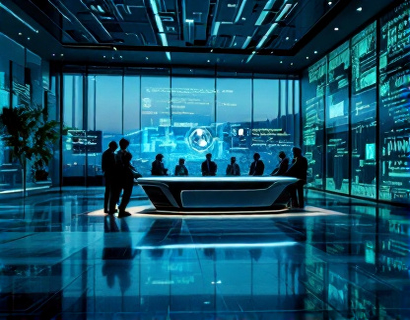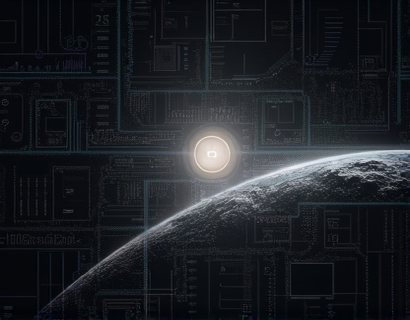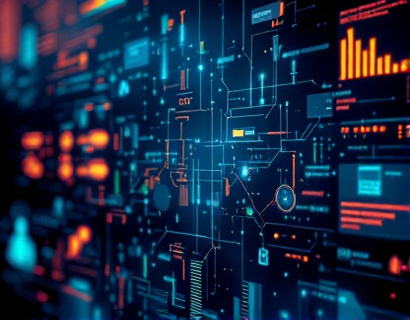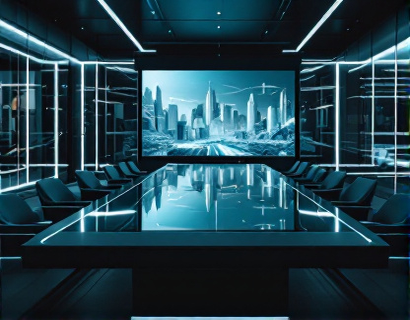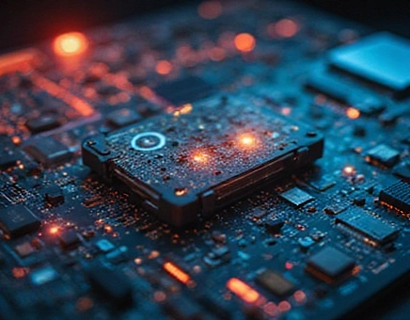Optimize Your Restaurant: Expert Management Software for Streamlined Operations and Enhanced Customer Experiences
In the competitive world of dining, restaurant owners and managers face numerous challenges that can impact the success of their businesses. From managing staff schedules and inventory to ensuring a seamless dining experience for customers, the tasks are diverse and demanding. To navigate these challenges effectively, leveraging expert management software is crucial. This powerful tool is designed to streamline internal operations and enhance external customer interactions, ensuring that every aspect of restaurant management is optimized for efficiency and satisfaction.
Streamlining Internal Workflows
One of the primary benefits of implementing expert management software in a restaurant setting is the refinement of internal workflows. These systems are equipped with features that automate and simplify various tasks, reducing the potential for human error and freeing up staff to focus on providing exceptional service. For instance, inventory management tools allow for real-time tracking of stock levels, automatically generating orders when items fall below a certain threshold. This ensures that the restaurant never runs out of essential supplies, minimizing downtime and maintaining menu consistency.
Staff scheduling is another critical area where management software excels. By integrating calendars and considering employee preferences and availability, the software can generate optimal schedules that meet both business needs and staff requirements. This not only improves employee satisfaction but also ensures adequate coverage during peak hours. Additionally, task management features enable managers to assign and track responsibilities, ensuring that every task is completed efficiently and on time.
Enhancing Communication and Collaboration
Effective communication is the backbone of a well-run restaurant. Expert management software facilitates seamless communication among staff, management, and even customers. Integrated messaging systems and notification alerts ensure that everyone is informed about important updates, changes, and emergencies in real-time. This reduces misunderstandings and ensures that all team members are aligned and working towards the same goals.
Collaboration tools within the software also foster a more cohesive work environment. Shared menus, recipes, and operational guidelines can be accessed and updated by all staff members, ensuring consistency in service and food preparation. This level of transparency and accessibility helps build a strong team culture, where everyone feels valued and informed.
Improving Customer Experiences
The ultimate goal of any restaurant is to provide an exceptional dining experience that keeps customers coming back. Expert management software plays a pivotal role in enhancing customer interactions and satisfaction. One key feature is the implementation of a robust point-of-sale (POS) system that streamlines order taking, payment processing, and customer management. This not only speeds up service but also reduces errors, leading to a smoother and more enjoyable dining experience.
Customer relationship management (CRM) tools integrated into the software allow restaurants to track customer preferences, order history, and feedback. This data can be used to personalize offers, recommend dishes, and address any issues proactively. For example, a customer who frequently orders vegetarian dishes can receive special promotions or new menu items that cater to their preferences, enhancing their loyalty and satisfaction.
Optimizing Menu Management and Kitchen Operations
Menu management is a critical component of restaurant operations, and expert management software provides comprehensive solutions to optimize this process. Digital menus can be easily updated and customized, allowing for seasonal changes, special promotions, and dietary restrictions to be reflected in real-time. This flexibility ensures that the menu remains relevant and appealing to customers.
In the kitchen, order management systems help streamline food preparation and plating. By linking the POS system to kitchen displays, chefs can receive orders instantly and efficiently, reducing wait times and improving accuracy. This direct line of communication also helps in managing kitchen workflow, ensuring that dishes are prepared in the correct sequence and presented to the highest standard.
Data Analytics and Insights
One of the most valuable aspects of expert management software is its ability to provide actionable insights through data analytics. By collecting and analyzing data on various aspects of restaurant operations, managers can make informed decisions that drive growth and improvement. For example, sales data can reveal peak hours and popular menu items, enabling better staff scheduling and inventory management. Customer feedback and review data can highlight areas for improvement, allowing for continuous enhancement of the dining experience.
Additionally, financial analytics tools help monitor profitability, cash flow, and cost control. By tracking expenses and revenue in real-time, managers can identify trends and make adjustments to pricing, promotions, or operational costs to maximize profitability.
Enhancing Security and Compliance
Restaurants must adhere to strict health and safety regulations, and expert management software helps ensure compliance with these standards. Features such as automated cleaning schedules, temperature monitoring, and inventory traceability contribute to maintaining a clean and safe environment. Digital records and reports can be easily generated for inspections and audits, reducing the administrative burden on staff and management.
Security is another critical concern, and the software often includes robust security measures to protect sensitive customer and business data. Encryption, user permissions, and regular backups ensure that information is secure and accessible only to authorized personnel.
Conclusion
In conclusion, expert management software is an indispensable tool for modern restaurants aiming to optimize operations and enhance customer experiences. By streamlining internal workflows, improving communication, and providing valuable insights, this software enables restaurant owners and managers to run their businesses more efficiently and effectively. As the dining industry continues to evolve, embracing such technological advancements is not just a competitive advantage but a necessity for long-term success.












